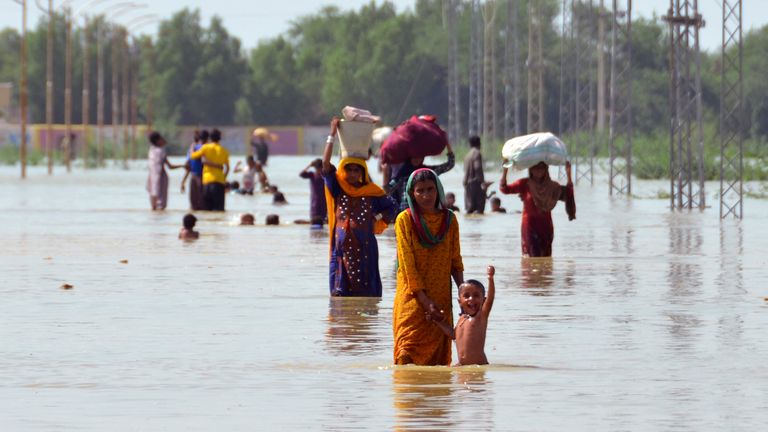Islamabad: The World Health Organisation (WHO) warned of 2.7 million malaria cases in flood-hit Pakistan by January 2023.
Urging the international community to “do a lot more” to help save lives in Pakistan, WHO’s representative in Pakistan Dr Palitha Mahipala Saturday said that they were expecting 2.7 million malaria cases in 32 districts by January 2023, reported Geo News.
He said that there are outbreaks of Acute Watery Diarrhea (AWD) in 46 flood-affected districts while malaria outbreaks are being reported in 32 districts. Moreover, cholera, measles and dengue outbreaks are among the other diseases which can lead to great loss if not paid immediate attention, he told reporters at a briefing at WHO Country Office in Islamabad.
Speaking about malaria, Dr Mahipala said 32 districts of Sindh and Balochistan were “worst-affected” due to malaria where thousands of cases were daily being reported and added that they were fearing 2 million malaria cases by December and around 2.7 million cases by the end of January 2023 from these districts.
Also Read: Iran state TV hacked with flames surrounding image of supreme leader
“In order to prevent mortality due to malaria, WHO is providing rapid diagnostic kits and anti-malarial medicines worth $2.5 million while technical support is also being provided to the federal and provincial governments to deal with malaria outbreaks. As larvicidal preventive measures are not possible in flood-affected areas, prophylactic treatment and post-exposure treatments are being arranged to treat malaria patients”, he maintained.
“Outbreaks of acute watery diarrhea are being reported from 46 districts of Pakistan while dengue has emerged as another major public health challenge, especially in Karachi and some other districts of Sindh. Unfortunately, the death reporting mechanism is not very strong so we don’t know the actual number of deaths but the situation is getting bad to the worst in the affected districts”, he maintained.
Acknowledging the outbreaks of measles and other vaccine-preventable diseases including cholera and typhoid in the flood-affected areas, the representative said malnutrition was another serious challenge for the health authorities as mal-nourished children could become easy prey to infectious diseases and added that special campaigns were being launched to vaccinate as many children as possible in the affected districts, Geo News reported.
Also Read: 5.5 magnitude earthquake jolts Indonesia
Terming the approaching winter as the third major challenge in the flood-affected areas, Dr Mahipala said the combination of water and vector-borne diseases and harsh winters could become extremely lethal for the millions of flood-affected people who are living along hundreds of kilometres of roads in Sindh and Balochistan.
He maintained that WHO has declared the Pakistan floods as a Grade 3 Emergency, the highest level, which means all three levels of the organisation — the country and regional offices, as well as headquarters — are involved in the response.
He added that WHO has appealed for USD 81.5 million to deal with disease outbreaks and to provide basic health services to the people at risk.
Read More :- Latest World News













